Gueorgui Otyrba is an Abkhazian politician and academic. He was the first Human Rights Commissioner of Abkhazia between 2007 and 2016 and acting Foreign Affairs Minister between June and July 2004.

The Government of the Republic of Abkhazia governs the partially recognised Republic of Abkhazia.
Andrejeva v. Latvia (55707/00) was a case decided by the Grand Chamber of the European Court of Human Rights in 2009. It concerned ex parte proceedings and discrimination in calculating retirement pensions for non-citizens of Latvia.
Maksharip Magometovich Aushev was an Ingush businessman and opposition leader in the Republic of Ingushetia, a federal subject of the Russian Federation. Aushev had taken over the opposition website, Ingushetia.org, after its owner, Magomed Yevloyev, a vocal critic of the Ingush government, was shot and killed while in police custody.

An ombudsman, ombudsperson, ombud, ombuds, or public advocate is an official who is usually appointed by the government or by parliament but with a significant degree of independence. In some countries, an inspector general, citizen advocate or other official may have duties similar to those of a national ombudsman and may also be appointed by a legislature. Below the national level, an ombudsman may be appointed by a state, local, or municipal government. Unofficial ombudsmen may be appointed by, or even work for, a corporation such as a utility supplier, newspaper, NGO, or professional regulatory body.
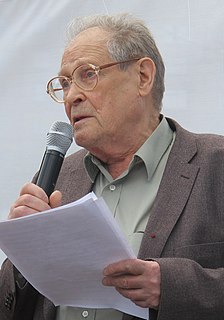
Sergei Adamovich Kovalyov was a Russian human rights activist and politician. During the Soviet period he was a dissident and, after 1975, a political prisoner.
Leonid Mikhailovich Vokuyev is a Commissioner For Human Rights of the Komi Republic until 26 March 2007. In November 2006, he filed a lawsuit against the Russian pop duo t.A.T.u., stating that the title of their second studio album Lyudi Invalidy was insulting to handicapped people.
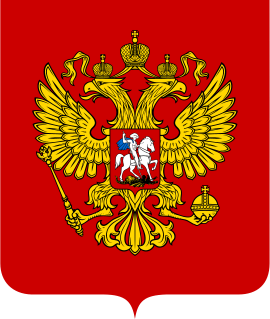
Mental health in Russia is covered by a law, known under its official name—the Law of the Russian Federation "On Psychiatric Care and Guarantees of Citizens' Rights during Its Provision", which is the basic legal act that regulates psychiatric care in the Russian Federation and applies not only to persons with mental disorders but all citizens. A notable exception of this rule is those vested with parliamentary or judicial immunity. Providing psychiatric care is regulated by a special law regarding guarantees of citizens' rights.
Agora is a Russian human rights group based in Kazan, Tartarstan. It provides legal advocacy for victims of suspected human rights abuses by government officials such as police, military and prison officers, with a particular focus on journalists, political activists, bloggers and Non-Governmental Organizations (NGOs). The organization was awarded the Rafto Prize for its work on 25 September 2014.
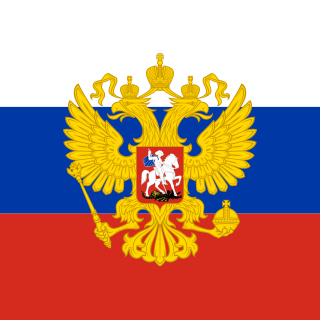
The Dima Yakovlev Law, Dima Yakovlev Bill, Dima Yakovlev Act, anti-Magnitsky law, or Law of Scoundrels is a law in Russia that defines sanctions against U.S. citizens involved in "violations of the human rights and freedoms of Russian citizens". It creates a list of citizens who are banned from entering Russia, and also allows the government to freeze their assets and investments. The law suspends the activity of politically active non-profit organisations which receive money from American citizens or organisations. It also bans citizens of the United States from adopting children from Russia. The law was signed by Russian President Vladimir Putin on 28 December 2012 and took effect on 1 January 2013. The law is informally named after a Russian orphan adopted by a family from Purcellville, Virginia, who died of heat stroke after being left in a parked car for nine hours. The law is described as a response to the Magnitsky Act in the United States, which places sanctions on Russian officials who were involved in a tax scandal exposed by Russian lawyer Sergei Magnitsky against Russian officials; Magnitsky was later found to have been handcuffed and tortured while in jail.

Novogurovsky is an urban locality in Aleksinsky District of Tula Oblast, Russia. Population: 3,590 (2010 Census); 3,809 (2002 Census); 4,491 (1989 Census).

Tatyana Nikolayevna Moskalkova is a Russian lawyer, teacher, and politician. She has been Russia's Commissioner for Human Rights since 22 April 2016, succeeding Ella Pamfilova, and is the Deputy of the State Duma of the Federal Assembly of the Russian Federation V and VI convocations.
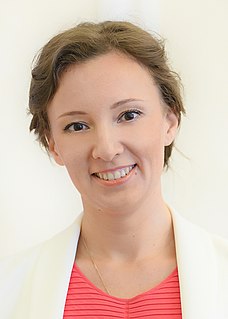
Anna Yuryevna Kuznetsova is a Russian politician serving as Member and Deputy Chair of the State Duma since 2021. Previously, she was Children's Rights Commissioner for the President of the Russian Federation. between 2016 and 2021.
Dmitri Marshan is the current Commissioner for Human Rights (Ombudsman) of Abkhazia.

Khorinsk is a rural locality and the administrative center of Khorinsky District of the Republic of Buryatia, Russia. In recent census', its population has been: 8,138 (2010 Census); 8,134 (2002 Census); 8,661 (1989 Census).
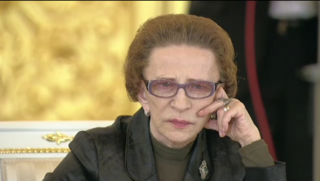
Tamara Georgievna Morshchakova is a Soviet and Russian jurist. She worked as a judge in the Russian Constitutional Court. Tamara Morshchakova was a member of the Russian Presidential Council for Civil Society and Human Rights until 2019.
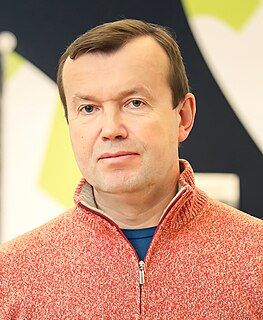
Aleksey Valerievich Ryabinin. Russian Public Ombudsman for Copyright and Intellectual Property. Russian economist, politician and writer. Member of the Moscow City Parliament (2009–2014), a member of Russian Journalist Union.
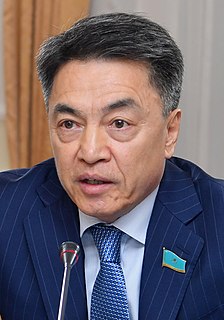
Asqar Orazalyūly Şäkirov is a Kazakh politician who serves as a Chair of the Senate of Kazakhstan since 2 September 2019.
Olga Borisovna Kudeshkina is a Russian former judge of the first qualification class of the Moscow City Court, Candidate of Legal Sciences. She was deprived of the status of a judge after she made public allegations of political interference in the justice system of Russia.
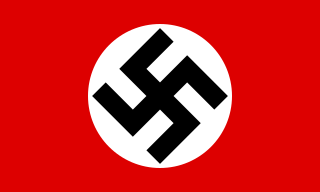
The National Socialist Russian Workers' Party was an ultranationalist social and political organization operating in the city of Kazan in 1994–1997.


















